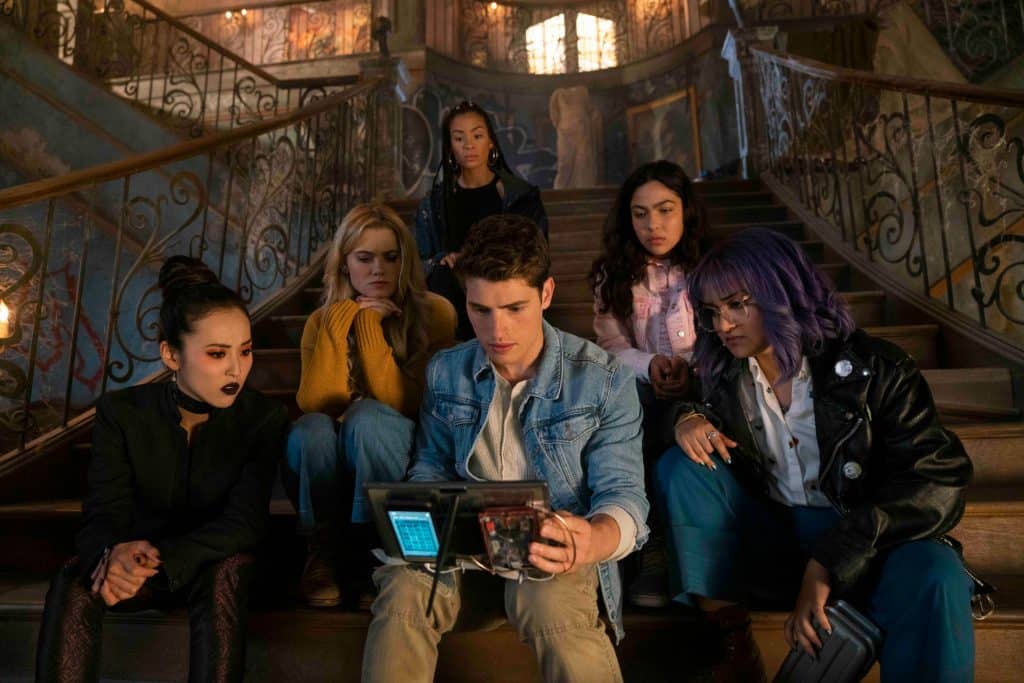Read also:
How to Watch FX Live Without CableHow To Watch AMC Without CableHow to Watch ABC Without CableHow to Watch Paramount Network Without CableThe third season of the Marvel series has some high points but mostly feels like it’s running in place.
Marvel’s Runaways season 3 has arrived, and the kids are not what one would call “all right.” Neither are the adults for that matter.
What had started as an asset in season 1 — lending a depth to the parents that wasn’t present in the comics — has become a detriment. Initially an interesting complication, it has long moved into confusion. After so many reversals and betrayals, Runaways seemingly realized the show was collapsing under the weight of it all. While they nod at the many unsavory examples, the show is done wrestling with it. The kids are not coming home, but they sure are going to visit.
One of the jokes/criticisms of Runaways since Season 1 is that the characters weren’t so much Runaways as they were “absolutely going to runaway at some point soon, honest.” By season 3, the show has evolved: now it’s not so much about running away as running around. There’s a great sense of motion, but little to show for it. Again and again, the show plays the same cards: trusting the wrong people, rejecting the right people, getting separated by force, getting separated by their petty disagreements, coming back together. And round and round we go.

To the show’s credit, they seem to get the above two issues have ground down the energy of the formerly lively show. Unfortunately, they need to finish off last year’s storyline before trying something new. As a result, the first five episodes are mired in an arc that it seems everyone — writers and actors — are long past down with. There is a pervasive sense of going through the motions that is only interrupted by Janet Stein (Ever Carradine) finally standing on her own and the weird saga of individuation that is Gert (Ariela Barer) and Dale’s (Kevin Weisman) daughter-father tete-a-tete. Even after the show calls it out specifically as a metaphor for the kids outgrowing their parents, Barer and Weisman’s energy still overcomes the obviousness.
Thankfully, for the show and reviewers everywhere, though, Hulu sent out all ten episodes. The back half of the season feels far more alive than Runaways has since probably the beginning of season 1. That is not to say the old problems are not there: we’re still “treated” to big issues that seem resolved with almost no effort and small ones that seem dragged out forever. Nonetheless, the show feels fun again. It is like it remembers that being a teenager is about the low and the highs, the thrill of being young and the pain of still not having much control of your life. It finally taps back into its central metaphor.
A significant part of this can be laid at the feet of Morgan Le Fay (Elizabeth Hurley). While not present as much as you might expect, her arrival as a full-fledged villain in the second half energizes the entire show. Her wicked attitude — she barely bothers to pretend not to be a villain — gives the proceedings a bite they’ve been lacking for too long. The fact that she grows increasingly comic book accurate in costuming as the show progresses is a bit of fun, especially given how little Runaways has otherwise cared to indulge in typical comic costuming theatrics. However, given how prominently Hurley’s body figures into that costuming, it is understandable if many come away feeling that it goes past fun and into pure male gaze.
It’s as though Runaways knows it should be a show about the instability and intensity of being a teenager but lacks the courage to engage with those stakes.
Cloak (Aubrey Joseph) and Dagger’s (Olivia Holt) crossover appearance also helps some; the new point of view on the lives of the Runaways allows for some humor. Plus, Joseph and Holt have the ability to sell about 90% of their dialogue, and some of it is truly heinous. They each get a line of exposition that feels more like a sentence in a Wikipedia entry than something a human has ever said. It’s impossible not to hear, but the duo somehow gives it enough of a spin that it doesn’t just derail the whole thing.
Still, Runaways seems too ensnared by its own trappings by this point. Its repeated moments of seemingly upending the show’s dynamics only to almost immediately backtrack are made literal by the time travel season (and now series) finale. It’s as though Runaways knows it should be a show about the instability and intensity of being a teenager, but lacks the courage to engage with those stakes. Yes, the show gives its teen “family” a final stroll into the sunset (and onto brunch). But when we’ve seen the same move several times already, it ends up a hollow facsimile, not a promise of exciting lives to come.
Marvel’s Runaways premieres its third and final season on Hulu December 13th.